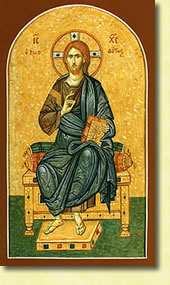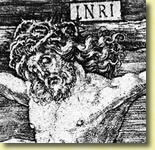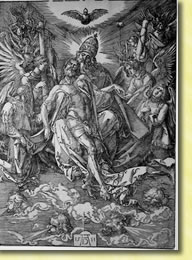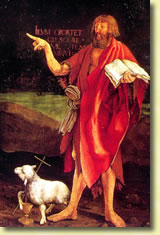Morning Prayer
Psalm 37
1 Kings 11:1-13
James 3:13-4:12
When I looked at the passage about King Solomon from 1 Kings this morning, I was very tempted to preach a very short sermon with some concrete applications. So, first, for those of you who are men, and who are beginning your studies here at Trinity School for Ministry—if you can manage to get through seminary with no more than one wife, and no more than one god, you’ll be better off in the long run. For the women, if the guy you’re interested in already has 700 wives, he’s probably not that into you.
On a more serious note, there really does seem to be a common theme uniting all three of the passages we’re read from the Daily Office lectionary this morning. All three passages have something to do with Wisdom.
So, beginning with King Solomon. Solomon is an ambiguous figure in the biblical canon. On the one hand, he is associated with Wisdom. At the beginning of Solomon’s reign as King, God appears to him in a dream, and gives Solomon the option to “Ask what I shall give to you.” In response, Solomon asks for an “understanding mind to govern your people, that I may discern between good and evil.” (1 Kings 3:5,9) Then follow several stories in which Solomon’s great wisdom is demonstrated. There is the story of the two women with one dead child and one living one who ask Solomon to decide which of them is the mother of which. There is the story of Solomon building the temple, and the prayer in which Solomon prays: “O Lord, God of Israel, there is no God like you in heaven above or one earth beneath, keeping covenant and showing steadfast love to your servants who walk before you with all their heart.” There is the story of the covenant that God makes with Solomon, promising to establish his royal throne forever. There is the story of the Queen of Sheba who visits Solomon and tells him: “Your wisdom and prosperity surpass the report that I heard.” (1 Kings 3-10)
Canonically, Solomon has historically been associated with three Wisdom books in the Old Testament canon – Proverbs, Song of Songs, Ecclesiastes. So Solomon is associated with Wisdom the way that Moses is associated with Law or David with Kingship.
And then there is this morning’s passage, where we are told that Solomon “loved many foreign women,” and had 700 wives, and 300 concubines, that his wives “turned away his heart after other gods,” that he sacrificed to Chemosh and Molech. This is a far cry from the Solomon who prayed at the dedication of the temple, “ there is no God like you in heaven above or on earth beneath.” (1 Kings 8:23) This is very different from the advice we find in Proverbs, where the young man is told to “rejoice in the wife of your youth.” (Proverbs 5:18) So the reading about Solomon raises the question, “What is wisdom?”
In the Psalm and in James, we also find ourselves asking the question, “What is wisdom?” The Psalm gives a practical definition of wisdom: “Trust in the Lord, and do good, dwell in the land and befriend faithfulness. Delight yourself in the Lord, and he will give you the desires of your heart.” (Psalm 37: 3-4)
James asks the question right off the bat: “Who is wise and understanding among you? By his good life let him show his works in the meekness of wisdom.” (James 3:13) So, there is a common theme this morning, that of wisdom. What is it? How do we find it? And, in only the few minutes I’m allowed for a sermon this morning, how does that apply to students who are beginning their studies in seminary? (more…)














